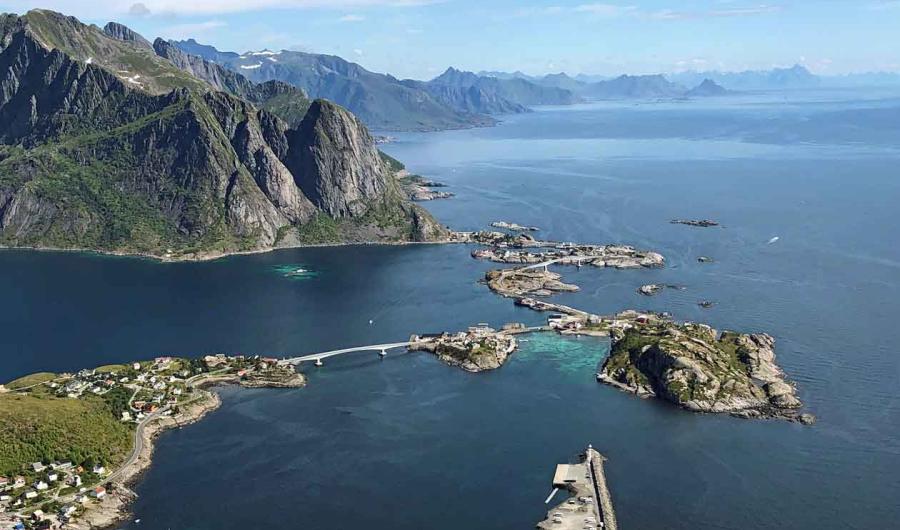
Education for Sustainable Development in a Coastal Communities
Programme description
Do you want to learn innovative forms of environmental education, through a flexible mobility format that combine online teaching and a unique one-week on-site component in costal Norway?
This unit will give you the opportunity to collaborate on addressing real-world examples in a common shared academic environment with students from across Europe.
The unit focuses on education for sustainable development within coastal areas – specifically to prepare individuals and communities to be aware of and act upon environmental problems. The course will run in April 2024.
Online meetings:
Three online meetings in April 2024.
- 08.04.24, 17.00-20.00 CET
- 11.04.24, 17.00-20.00 CET
- 18.04.24, 17.00-20.00 CET
On-site component in Norway:
22nd – 26th April 2024.
Admission requirements:
• The students must be at a master-level education in their home institution, e.g., have a relevant bachelors’ degree or possess minimum 180 ETCS within e.g. education/pedagogy/social science/natural science.
• English language proficiency Level CEFR B2. Application and ranking criteria: The course does not carry tuition fees and is open to any candidate (even students outside SEA-EU) who satisfies the criteria for eligibility to apply to the course.
Exchange students are admitted on the basis of nomination by their home institution. This means that the student will have to apply to their home university first to participate. The home institution will provide the student with information about the admission requirements and nominate students according to internal selection criteria/processes.
Applicants who can avail themselves of ERASMUS+ funding need to apply accordingly. This will enable them to get support to attend the on-site week in Norway.
Places on the course are limited up to 20 students from partner institutions and 5 students enrolled at Nord University.
- 5 seats reserved for University of Malta
- 5 seats reserved for University of Gdansk
- Other partner institutions can nominate up to 3 students
If there are less than 5 applicants from Malta and/or Gdansk respectively these places will be released to other universities.
If the number of nominated students exceeds the number of places available, applicants will be ranked according to the following selection criteria:
1. Students from SEA-EU partners
2. Group diversity: geographical spread
Students from Nord University are ranked according to the following selection criteria: - students enrolled in teacher education programmes are prioritized - If the number of applicants exceeds the number of places available, motivational interview may be conducted
Knowledge:
By the end of the study-unit the student can:
• critically compare and contrast the principles of Environmental education and Education for sustainable development
• apply Environmental education/Education for sustainable development knowledge to real-world sustainability challenges in coastal communities
Skills:
By the end of the study-unit the student can:
• produce case-specific dissemination material to address Environmental education/Education for sustainable development educational needs in coastal communities
• carry out an independent limited project within Environmental education/Education for sustainable development
General competence:
By the end of the study-unit the student can:
• present Environmental Education/Education for sustainable development for an academic and popular target audience
• critically reflect on and evaluate Environmental education/ Educational programmes and their effectiveness on local communities.
The course does not carry tuition fees. Exchange students from SEA-EU, Erasmus+ and other universities holding a student exchange agreement with Nord University, are exempted from paying semester fee.
Expenses covered by the student:
- Travel expenses to/from Norway and any additional overnight stay
- Accommodation MondayFriday in self-catering apartments is covered by the student: approx. 1430 NOK/week. Demmabakken student home (studentinord.no) Bedsits with shared bathroom/kitchen are reserved.
- Approximate grocery expenses in Norway for the duration of the five-day physical component: 700 NOK
- The students must have access to adequate technical equipment for online studies, and for the physical component - bring their own laptop and clothes fitted for potentially cold, rainy and windy outdoor conditions. A list of recommended basis clothing and equipment will be provided.
Expenses covered by Nord University:
- Transportation from Trondheim to Nesna on Monday 22 th April
- Transportation for excursions in Nesna
- Transportation from Nesna to Bodø on Friday 26th April
A celebratory dinner on Thursday April 25th will also be provided free of cost



